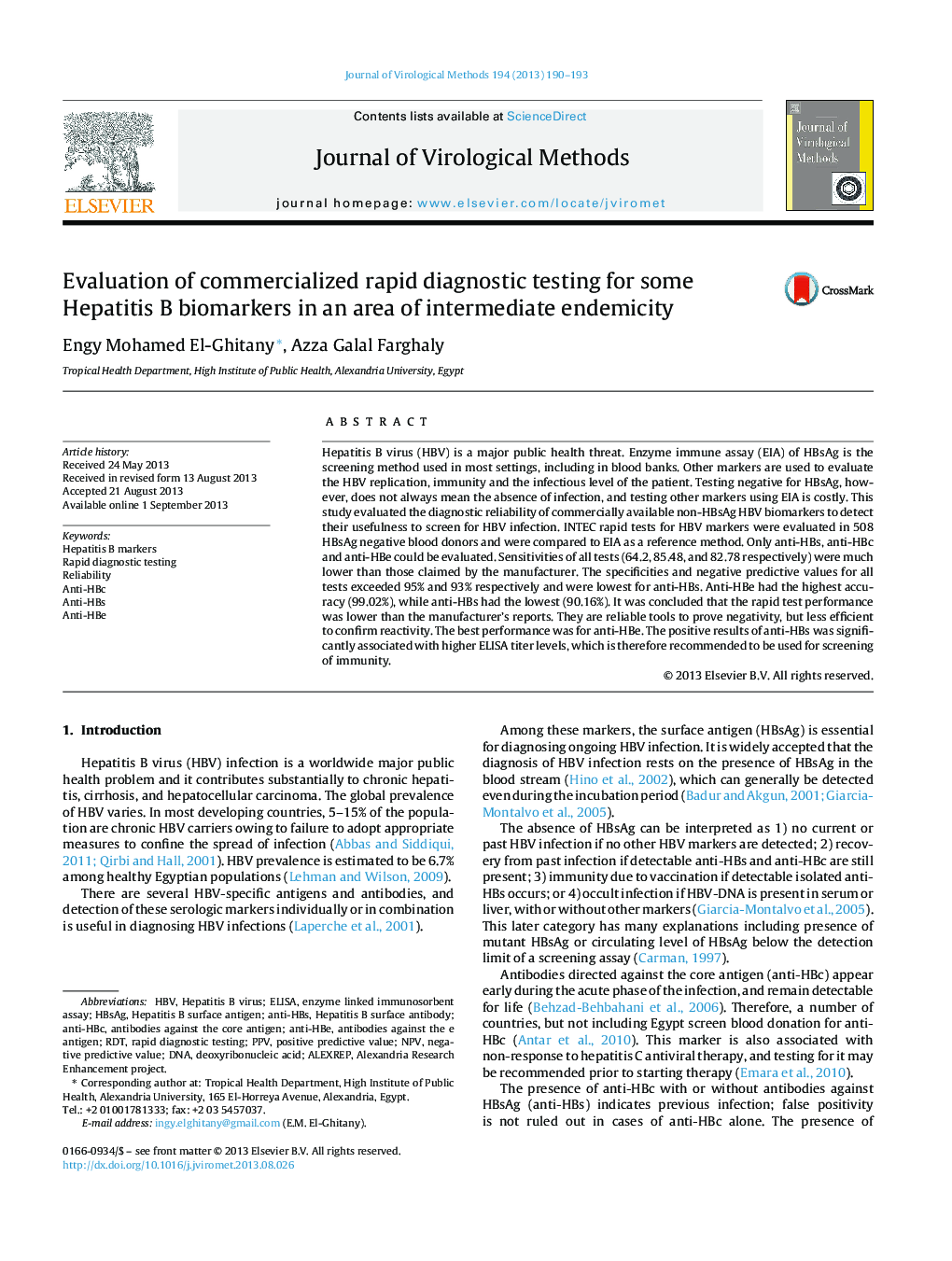| Article ID | Journal | Published Year | Pages | File Type |
|---|---|---|---|---|
| 6134225 | Journal of Virological Methods | 2013 | 4 Pages |
Abstract
Hepatitis B virus (HBV) is a major public health threat. Enzyme immune assay (EIA) of HBsAg is the screening method used in most settings, including in blood banks. Other markers are used to evaluate the HBV replication, immunity and the infectious level of the patient. Testing negative for HBsAg, however, does not always mean the absence of infection, and testing other markers using EIA is costly. This study evaluated the diagnostic reliability of commercially available non-HBsAg HBV biomarkers to detect their usefulness to screen for HBV infection. INTEC rapid tests for HBV markers were evaluated in 508 HBsAg negative blood donors and were compared to EIA as a reference method. Only anti-HBs, anti-HBc and anti-HBe could be evaluated. Sensitivities of all tests (64.2, 85.48, and 82.78 respectively) were much lower than those claimed by the manufacturer. The specificities and negative predictive values for all tests exceeded 95% and 93% respectively and were lowest for anti-HBs. Anti-HBe had the highest accuracy (99.02%), while anti-HBs had the lowest (90.16%). It was concluded that the rapid test performance was lower than the manufacturer's reports. They are reliable tools to prove negativity, but less efficient to confirm reactivity. The best performance was for anti-HBe. The positive results of anti-HBs was significantly associated with higher ELISA titer levels, which is therefore recommended to be used for screening of immunity.
Keywords
Related Topics
Life Sciences
Immunology and Microbiology
Virology
Authors
Engy Mohamed El-Ghitany, Azza Galal Farghaly,
